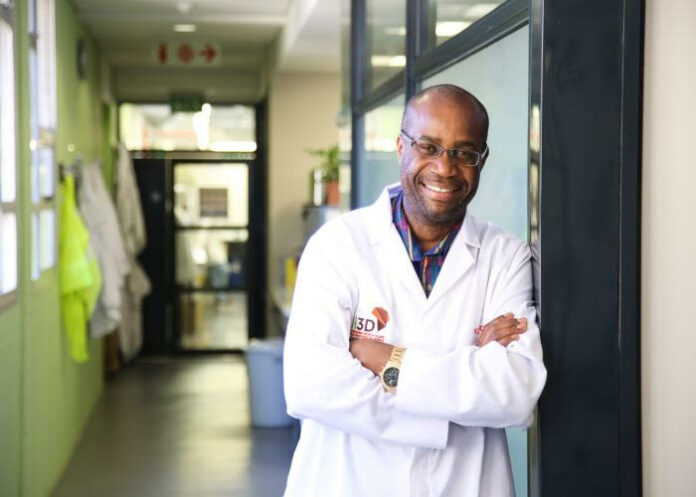A University of Cape Town professor has been named among Harvard Public Health Magazine’s top 25 public health leaders and “standout voices” in Africa, reports Sunday Times.
Drug pioneer Professor Kelly Chibale, who researches how medicines can be customised for Africans, says that despite at least a quarter of the world’s disease burden being in Africa, the continent is still largely overlooked when it comes to the discovery of medicine. As a result, many Africans don’t respond well to or heal from drugs mostly developed in the West.
He believes it’s time for this to change.
The international accolade for Zambian-born Chibale, professor of organic chemistry at UCT and director of H3D, the university’s drug discovery and development centre, is in recognition of his work on drug discovery and the use of artificial intelligence (AI) to create homegrown solutions that will improve the health outcomes of Africans.
Five other South Africans are recognised for shaping policy in their fields on the continent; they include leading HIV scientists Professor Quarraisha Abdool Karim and her husband, Professor Salim Abdool Karim, of the Centre of the Aids Programme of Research in SA.
In “Africa’s changing up public health. The world should take note”, the magazine refers to the continent’s community-focused approach to public health and notes that Africa needs partnerships to increase investment in science, skills development and infrastructure to provide sustainable and scalable health solutions.
Chibale said the latest recognition of local scientists and his work “means a lot for the global South”.
“It means others here can learn from H3D’s pioneering of a sustainable capacity-building, strengthening and skills development model that results in the creation of capacity to develop, nurture and retain skills on the African continent.
“We started with one platform and five postdoctoral scientists in chemistry at H3D outside my academic research group.
“Today we have an integrated platform across chemistry, biology and pharmacology, with 76 staff and postdoctoral scientists. These are real, direct jobs we have created.”
He said the role African health sciences and communities played in the COVID-19 pandemic brought to the fore “out-of-Africa” innovation, capacity and infrastructure that are not acknowledged.
Yet, the pandemic also exposed vulnerabilities in African health systems and emphasised the need to “bolster Africa’s public health capacity and infrastructure, including its drug innovation capabilities”.
He said: “There is a dire need to tap into local innovators and encourage them to fill in gaps and chart home-grown solutions.
“This is what the H3D platform provides for the entire continent. We are using AI and machine-learning tools to advance the design of tailored medicine or drug dosages that are optimal for people of African descent.”
Chibale said a one-size-fits-all approach – giving the same dose of drugs to different population groups that metabolise them differently – could result in overdosing and toxic side-effects for slow metabolisers. “This is something a clinical trial can unravel, but unfortunately there is a very low, or less than 2%, volume of clinical trials that happen in Africa.”
It is important for Africans to have tailor-made drug doses because most medicines used on the continent are studied in clinical trials in the global North, he added. The dosing regimens are optimised there and then the therapies are brought into Africa.
See more from MedicalBrief archives:
UCT professor warns about Africa’s science brain drain
How COVID gave African countries the opportunity to improve public health
African Academy of Sciences: Continent’s first real-time clinical trial platform launched

